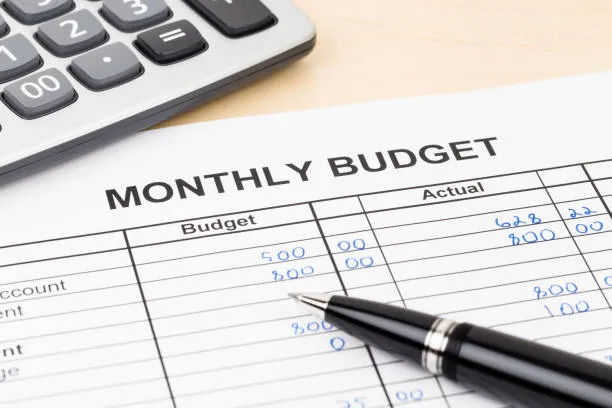In today’s economic panorama, managing personal budget successfully is greater vital than ever. two primary economic desires that everybody strives to reap are eliminating debt and building savings. however, the mission arises when seeking to stability those targets concurrently. on this complete manual, we’ll explore sensible strategies for balancing debt repayment with financial savings dreams, presenting actionable recommendation to help you advantage manage of your budget whilst paving the manner for a relaxed economic destiny.
knowledge the importance of both Debt reimbursement and savings desires
before diving into the techniques, it’s vital to understand the significance of balancing debt repayment with saving for the future.
Debt reimbursement: Debt can weigh heavily in your economic well-being. whether it’s student loans, credit card debt, or non-public loans, unpaid debt frequently accrues hobby and might lessen your capacity to build wealth. well timed compensation is essential to avoid escalating hobby payments and to lessen the impact of debt in your monetary destiny.
savings goals: at the flip side, constructing savings is equally critical. whether saving for an emergency fund, retirement, or massive purchases, having a economic cushion affords peace of thoughts and prepares you for surprising lifestyles activities. without savings, it’s smooth to fall into debt once more if an emergency arises.

Balancing those two can appear daunting, but with a nicely-idea-out strategy, you can address each efficaciously without sacrificing one for the alternative.
Key strategies for Balancing Debt repayment and financial savings
right here are a few strategies that will help you balance debt reimbursement with financial savings goals:
1. Create a finances That Prioritizes each
A nicely-dependent budget is step one in managing both debt and financial savings. by way of allocating budget accurately, you ensure that your financial goals are met with out overwhelming your self.
Debt compensation Allocation: perceive all of your debts and rank them based totally on their interest prices. consider the use of the debt avalanche method, wherein you awareness on paying off high-interest debt first, or the debt snowball technique, in which you attention at the smallest money owed first to build momentum.
financial savings Allocation: After addressing debt payments, set apart a portion of your earnings for savings. purpose to make a contribution to both quick-time period and lengthy-time period financial savings desires. this can encompass emergency financial savings, retirement price range, or saving for massive expenses like a domestic or holiday.
A balanced price range have to mirror each instant debt obligations and your destiny financial savings priorities. gear like Mint, YNAB (You need A price range), or EveryDollar can assist in growing a manageable finances.
2. establish an Emergency Fund earlier than aggressive Debt compensation
while paying off debt is crucial, having an emergency fund need to be your first precedence. This fund acts as a financial buffer in case of sudden prices, which prevents you from counting on credit score cards or loans at some stage in difficult times.
Fund size: specialists normally recommend saving 3 to 6 months’ worth of residing fees. This ensures that you’re blanketed in case of emergencies like medical bills or process loss without derailing your debt compensation efforts.
as soon as your emergency fund is in region, you can shift your attention toward paying down debt greater aggressively.
3. Use the Debt Avalanche or Debt Snowball approach
on the subject of paying down debt, it’s vital to undertake a systematic technique. the two most famous techniques are:
Debt Avalanche method: This technique prioritizes debts with the very best hobby charges. It minimizes the quantity of hobby you pay over the years and permits you to repay your money owed faster. at the same time as this approach may additionally take time to reveal seen development, it’s miles the maximum value-effective inside the long term.
Debt Snowball approach: This method entails paying off the smallest money owed first. As every small debt is paid off, you gain momentum, making it less complicated to continue tackling the next debt. The snowball technique is psychologically rewarding and will let you live influenced.

pick the approach that aligns together with your monetary and emotional preferences. whether you prioritize saving money or gaining quick wins, both strategies permit you to achieve your aim of casting off debt.
4. Automate Your bills
Automation guarantees that each your debt payments and savings contributions are dealt with at once. installation automated transfers in your debt repayment money owed and savings bills, ensuring they occur as soon as you get hold of your paycheck. This minimizes the temptation to bypass a payment or forget about approximately your financial savings desires.
with the aid of automating, you also keep away from the danger of spending money that must be used for debt repayment or financial savings, preserving your monetary plan on the right track.
5. Make greater bills while possible
every time you’ve got more money—whether from a bonus, tax refund, or side gig—remember the use of it to pay down debt or raise your financial savings. through making more bills, you can accelerate your debt compensation plan or growth your emergency fund with out notably impacting your ordinary finances.
even as you need to keep away from overspending or using credit playing cards to make greater bills, responsibly the usage of windfalls can fast-track your financial goals.
6. Refinance or Consolidate Debt
in case you’re dealing with high-hobby debt, refinancing or consolidating may also offer an opportunity to decrease your monthly bills and decrease the general value of debt. that is especially useful for credit card debt or non-public loans.
Refinancing includes changing an existing mortgage with one which has a lower hobby charge, lowering the quantity you pay through the years.

Debt consolidation combines multiple debts into one mortgage with a lower interest rate, simplifying bills and potentially saving money.
each strategies allow you to stability your budget with the aid of freeing up money for financial savings at the same time as also lowering your debt load.
7. Overview Your development and alter Your method
monetary conditions can alternate over time, and it’s crucial to check your method periodically. if you acquire a enhance, reduce your prices, or repay a loan, use this opportunity to regulate your debt repayment and financial savings dreams. As your state of affairs improves, allocate extra cash to financial savings or debt reimbursement, depending on what wishes extra interest.
A brief table of recommended Debt repayment vs. financial savings Contribution Allocation
| Financial Goal | Recommended Allocation (%) | Priority |
|---|---|---|
| Emergency Fund | 10-20% of income | First Priority |
| High-interest Debt | 20-40% of income | High Priority |
| Retirement Savings | 10-15% of income | Medium Priority |
| Other Savings Goals | 5-10% of income | Low Priority |
This table can serve as a guideline to help you allocate your income based on the importance of each financial goal.
Frequently Asked Questions (FAQs)
Q1: need to I cognizance on paying off debt or saving first?
A1: It depends for your situation. if you don’t have an emergency fund, prioritize saving for emergencies first. once that’s installed, cognizance on paying off excessive-hobby debt whilst still contributing to savings.
Q2: How am i able to keep for retirement even as paying off debt?
A2: bear in mind contributing a small percent to retirement savings at the same time as focusing extra on paying off excessive-hobby debt. once your money owed are under manipulate, increase your retirement contributions.
Q3: How do I realize if I’m setting sufficient in the direction of debt or financial savings?
A3: Use a finances to song your income and fees, making sure which you allocate sufficient for each debt compensation and savings. Reevaluate your financial goals often to peer if adjustments are vital.
Q4: Can refinancing assist with balancing debt and savings?
A4: yes, refinancing can lower your interest fees, freeing up greater budget for savings whilst paying down debt extra effectively.
Conclusion
Balancing debt reimbursement with savings desires requires field, a clear method, and regular tracking. by way of budgeting successfully, automating bills, and making more contributions where feasible, you could concurrently lessen debt and construct wealth. don’t forget, personal finance is a journey, and while it may take time, with endurance and careful making plans, you’ll acquire monetary balance and peace of mind.



